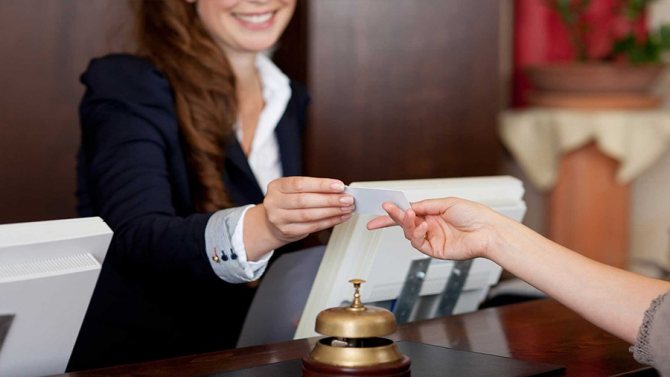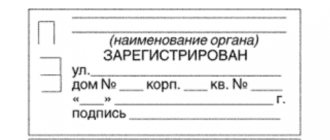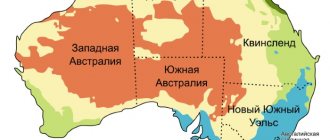I probably belong to another type of guide. It was not money that motivated me, but the opportunity to meet and communicate with new people. I didn’t work in tourism before, I was a freelance translator from English and Arabic. I’m a fairly sociable person, I know how to tell interesting stories and make contact, so I thought: why don’t I become a guide? Moreover, a job came up in Tunisia, and I was already well acquainted with this country.
When I decided to become a guide, they literally gave me a ticket to Tunisia and sent me to work. We didn't even have a proper interview. I know that in Turkey they always call the candidate on Skype in advance and ask him to tell him about himself. The main requirement we had was to have black shoes so as not to stand out from our colleagues. Local guides also work with us - for example, from families where the mother is Russian and the father is Tunisian, and they know several languages, and we don’t even have to speak English.
To get to know the country, we had a short internship and went on several excursions. Before you sell any trips to tourists, you need to go there yourself to tell about this place.
Types of guides
At a foreign resort, guides of different specializations work with our tourists. There is a transfer guide who meets visitors at the airport and takes them to hotels, and when the vacation ends, also accompanies them to the airport. It would seem that you have taken everyone away and go relax on the beach or by the pool, but everything is not so simple. There are sometimes several such trips per day, planes can arrive late at night or early in the morning, and the airport is usually located quite far from the hotel area. Along the way, the transfer guide provides basic information about the country and basic organizational issues. He also needs to convince people to gather the next day so that the rules of staying at the resort are explained to them and at the same time they are sold excursions. Usually, for the sake of persuasiveness, they also scare you: if you don’t come to the meeting, then you won’t know how to fly back.
The transfer guide brought and dropped off the tourists at the reception, and then the hotel guide takes care of them, that’s just me. We usually work 12 hours a day: we talk about attractions, send tourists on excursions, and help with problem solving. People on vacation are so relaxed, and sometimes it seems to me that they simply cannot cope without a hotel guide. I hold the first meeting and then wait for questions. We also recommend shops and restaurants to tourists, from which we ourselves receive discounts. Above the hotel guide there is also a boss - the chief guide.
Excursion guides work with tourists on excursions. They go sightseeing, sometimes it takes the whole day. Tour guides have more free time than we do. Well, they part with the tourists as soon as the excursion ends, and we are constantly with them side by side in the hotel.
Types of vacancies
Taking into account the nuances and volume of work performed, tour operators may require:
- excursion guide;
- transfer guide;
- hotel guide.
In some cases, companies offering travel to clients employ a tour guide - a driver or translator. It also happens that a company needs a generalist employee.
Working as a transfer guide requires impeccable knowledge of city infrastructure, excellent communication skills, and the ability to speak a foreign language professionally. But for combining job responsibilities, the employee is entitled to bonuses in the form of bonuses and allowances.
Hotel guide vacancies can also have high salaries, since you have to do the work of two or even three highly specialized employees.
Work at the resort
They put us up in the same hotels where we work. It is clear that these are rooms for employees, which vacationers will not rent: we live directly above the room where the animation takes place. They feed us for free. We also have transfer guides living at our hotel. When there is no need to meet or see off anyone, they should be here all the time, but we change so that we have time to go buy something or swim. We have two sets of uniforms, and not the most suitable ones. The uniform skirt is very short, and in an Arab country this look may be considered inappropriate.
We are at the hotel 24 hours a day, seven days a week. Psychologically it is very difficult: you understand that wherever you go, tourists will catch you and start asking questions. Even if you are trying to swim after a hard day at work, there will be a tourist in the pool next to you, swimming and asking something. At the beginning of the season, tourists periodically brought me to tears, and I hid to cry.
In theory, we are not allowed to go on break. They are afraid that it is at this time that the most moneyed people will come and want to go somewhere right now. We are also not allowed to turn off the phone or put it on silent mode. If you don't pick up the phone and don't respond via messenger, you'll be fined. I talk to guys from other companies, they also get tired, but they have more freedom. We have a very tough system built on intimidation. At some point you catch yourself thinking that you are twitching at any sound.
Colleagues
Relationships with colleagues are different, much depends on the difference in age and the number of colleagues. The young people are mostly all friends and often get together. And if the team is more than 20 people, then communication takes place in a “hello-bye” format. But nevertheless, small gangs of “rooted” guides are emerging, those who have been working for a long time. And everyone knows each other, even working in different companies. Some become friends, some become enemies. In general, everything is the same as with ordinary people.
You look at some colleagues and get really angry because they behave terribly towards tourists. I had several colleagues, hotel guides, who might not provide assistance to a tourist who did not buy any excursion. Or communicate with him in such a way that any desire to contact him will disappear.
And when I worked for a season in Vietnam, I was amazed by my colleagues who worked for Vinpearl and were frankly impudent. For example, an individual excursion costs 200 dollars, but they sell it for 400 - because the tourists who vacation there can afford such a trip. This is possible if the “extra” money goes to the company’s cash desk. They took this money into their pockets.
Guides always tell all tourists that they should buy excursions exclusively from the company and under no circumstances on the street. This is done, first of all, to ensure that there are no complaints against the tour operator regarding poor quality service.
I was friends with most of my colleagues, I don’t remember there being any negativity.
When we got together with a group of colleagues, we began to discuss everything in the world - the loss of suitcases, various oddities, like, for example, the guide slept through the program or how he fell asleep right during the excursion.
There was a case when a car arrived early to pick up tourists, somehow the time was not calculated correctly, and the guide and driver decided to get some sleep. As a result, the tourists walked around the car for about 20 minutes and knocked on the windows, trying to wake them up.
Excursions and discounts
Of course, we constantly offer paid excursions. Guides have a concept of “target” - the amount of money that needs to be made on a tourist. This is about 2 thousand translated into rubles. For a child, half the price - a thousand rubles. But no one does target all season. Tourists sometimes themselves say that they do not have money for excursions. They saved up for this vacation - that’s all. There are even hotel guides who won’t really help a person if he hasn’t bought anything from them.
I myself came from Russia and I understand what our salaries and prices are. Putting pressure on people and persuading them to spend money on excursions is absolutely useless - there is simply nothing to spend. So basically we have to deal with the everyday problems of tourists. They lost something, got poisoned, and are coming to you. So if you don’t like people, then the job of a guide is definitely not for you.
We also work with restaurants, cafes and shops near the hotel. We hand out their business cards and advise our guests. They usually give tourists a discount of about 10%, but it all depends on the owner of the establishment and his relationship with the hotel.
Working abroad without knowing the language
Mostly, tour operator vacancies abroad require knowledge of English. To find a qualified job with a decent salary, you need to know a foreign language at least at a minimum level.
Despite the fact that in this case it will not be possible to become a hotel or transfer guide abroad, you can look for work in other areas. Thus, workers only with knowledge of Russian are sometimes required in the service area. Usually these are cleaners, cooks and laundresses in hotels abroad. Often such personnel are invited to work on a rotational basis, with accommodation.

Life without a passport
Many people think that guides live a great life - travel, vacation in different countries, and you don’t have to pay for anything. But this is not true at all. A lot depends on the receiving party. In Russia, you are looking for a job in a large travel company, but when you come abroad, you only have contact with the local host company. If they turn out to be decent people, then everything will be fine with you. For example, they took our passports and promised to give us work visas. But without documents, according to the laws of Tunisia, we are all here and working here illegally. We do not have any work permits. The police can come and arrest you at any moment, especially if you are carrying a lot of currency. But they never warn about this in advance. You can stay in Tunisia without a visa for three months, and we come here from April to October. It’s just that when we fly out, the receiving party will pay a fine for us at the airport.
This happens not only in Tunisia, but also in Turkey, and previously happened in Egypt. This topic is often raised on social networks. The guys who arrived recently ask what they should do, and those who have been working for a long time answer that this is normal practice. In principle, you can return your passport, but only through the police, and not everyone is ready to contact them either. For many, it’s easier to work the season, get your passport and return home.
The locals who work with us frankly don’t understand why we come and agree to work in such conditions. There are no days off or sick leave. It seems like you are abroad, but there is almost no free time.
Search for vacancies abroad
You can find work abroad by using professional social networks - LinkedIn and Viadeo. These portals allow you to search for jobs all over the world. If the first social network is more suitable for searching for vacancies in the USA, then through Viadeo you can find work in Europe (especially in France, Spain and Italy), China and Africa.
It is also possible to find a job by contacting representatives of a tour operator abroad. Often vacancies are offered by such large companies as Tez Tour, Anex tour, Biblio Globus, Sunmar, Coral Travel and others. Usually tour operators have work as a tour guide abroad.
Russians on vacation
Egypt was closed, Türkiye went up in price, everyone rushed to Tunisia. Tourists even have this syndrome - they compare everything with past holiday experiences: how cool it was in Turkey, and how beautiful it was in Egypt, and now there is only Carthage with three columns. And you always feel a little unhappy, as if you didn’t live up to your expectations. Of course, I’m trying to defend Tunisia, I’m offended for it.
The main complaints are “dirty” and “many Arabs”. Not only visitors, but also locals relax in our hotel. And Russian tourists don’t like this; they have to explain that people just came to relax, they live in this country and have every right to do so. The problem is that the tour operator initially misinforms tourists. To send them to the country, they are promised gold and marble, but they come and see something completely different.
There are even those who arrive and immediately say: “We want to go back for any money!” I usually persuade them to stay and be patient for a couple of days, and then I see that they have already found friends here, are drinking, chatting with them and have already forgotten that they wanted to leave.
I figured out that the most harmful tourists come from St. Petersburg. They usually have no money, but have very high demands and are ready to eat the guide alive. The funny thing is that all sorts of nonsense constantly happens to the most problematic tourists, which I cannot influence: either the driver forgets to come for them, or the bus breaks down.
We didn’t have any fights for the right to be the first to approach the buffet, but once there was a serious conflict, which had to be dealt with at the level of the hotel director. Once in the pool, the Russian mother went to deal with the Ukrainian mother, and everything escalated into political accusations. And in general, people like to move someone. Bartenders and waiters fall under the hot hand. Colleagues from another hotel said that one woman even got into a fight with a maid, so she was evicted. She was lucky that she was simply transferred to another hotel, albeit at a lower level.
How to look for a job correctly
Becoming a guide is not difficult. Most current tourism workers found vacancies using one of three ways:
- Through friends. Since there are many of our compatriots abroad, if you look in the phone book, you can find those who have already tried themselves as a foreign guide. This path makes sense because it is the most reliable.
- Internet. There are many sites on the international web that offer foreign employment to our compatriots. You can find a vacancy you are interested in and send an electronic resume in English to the specified address.
- Employment companies. In every city there are companies engaged in employing people abroad. The main danger of working with them is that it is difficult to determine who actually provides the service and who posted the ad with the aim of deceiving citizens. It is important not to make any advance payments, not to believe when you are offered to go abroad on a tourist visa, and then convert it to a work visa. The fact is that a work visa is always issued to applicants in their home country. It is advisable to have contact information for your future employer. If you are not being deceived, these contacts will be provided.

Ideally, you should go to work abroad with all the information about the future vacancy, that is, what your salary, work schedule, living and working conditions, etc. will be.
From the many years of experience of our compatriots in the tourism sector, we can conclude that in most cases people get such jobs without having a special education. If you have it, you will be first on the list to get the job.
Income
Russians, Belarusians and Ukrainians are paid more than local guides. They receive about 280 dollars a month, and we receive about 400, that is, 25 thousand translated into rubles. According to the documents, we are supposed to receive another 4% from excursions, but the chief guide takes 3%, and only 1% goes to us. This is not officially held anywhere, just an internal kitchen.
Local employees of the hotel and various establishments generally treat guides with respect and understanding. You are vested with some kind of power, you wear a uniform, and you also bring tourists to the country, and therefore money. The locals we work with can offer us discounts in shops and cafes, free spa treatments, which we gladly take advantage of.
Requirements for hotel and travel agency employees
The hotel and tourism industries impose certain restrictions on employees. Thus, the following requirements are usually imposed on hotel staff and travel agency employees:
- knowledge of foreign language;
- neat appearance;
- knowledge of communication ethics;
- professional training;
- age limit;
- a uniform;
- medical requirements.
Also, any employee is obliged to comply with the rules and norms of behavior while in the workplace.

Expenses
There's not much to spend money on here. You don't need clothes - you live in either pajamas or work uniform, food too. Sometimes I buy coffee, because it is very bad at the hotel, and I can smoke a hookah. If I need to go somewhere for my business, I spend money on transport. But this is a maximum of 3 thousand rubles a month for everything. This is not my first time in Tunisia, so I don’t need souvenirs. Maybe I'll buy something made of gold when I leave.
I save almost all my money. I know for sure that I will fly home and get some sleep first. Then I’m going to go to graduate school, maybe I’ll go to some snowy and cold European country. I think I’ll help my parents with money and put some of it in the bank.











